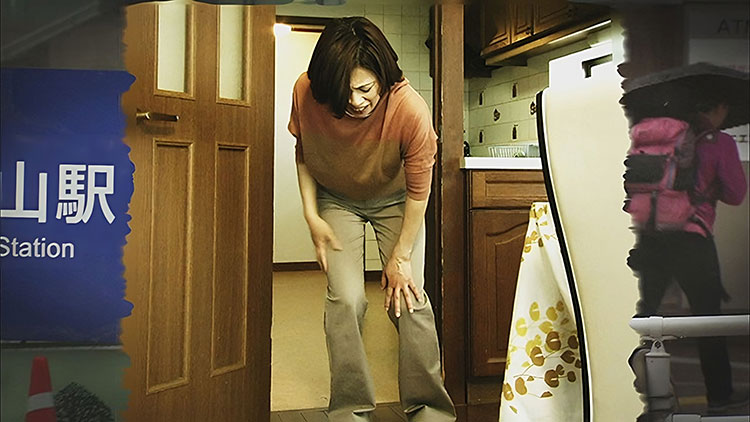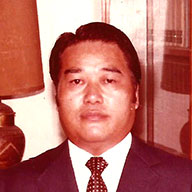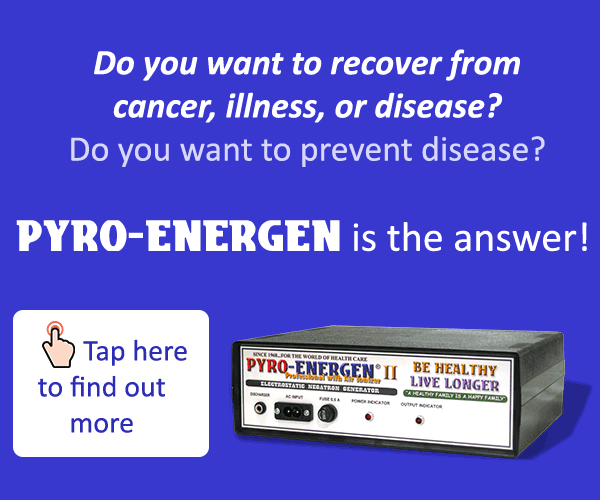Weather Pain (Meteoropathy): How to Predict and Prevent Pain Before It Starts
Updated: May 13, 2024
Today, we're talking about "weather pain" – that strange phenomenon where old injuries start to hurt or chronic conditions worsen when the weather turns bad. Meteoropathy is the medical term used to describe this condition.
You might have heard people say they feel nerve-like pain (neuralgia) when rain is coming, or having stiff shoulders when it gets cold. It's hard to believe there's a connection between weather and pain, right? Well, after some thorough research, it turns out that weather really can trigger pain. What's more, recent studies have revealed that weather and pain is linked to an unexpected part of the body.
In this article, you'll learn the mechanism behind weather-related pain, treatments to prevent pain before it starts, and ways to alleviate all kinds of pain.

What is Weather Pain, A Global Phenomenon with Localized Effects?
In Germany, there's a public service called "weather pain forecast" that predicts the occurrence of weather pain. This service isn't limited to Germany; it's also available in other European countries, the United States, and Japan, showing that weather pain is a global concern.
Weather pain refers to the phenomenon where chronic conditions like headaches, stiff shoulders, neck and lower back pain, and nerve pain, as well as old injuries from fractures, accidents, or surgeries, cause pain due to weather changes. In Japan, one in three Japanese people experience weather pain.
When interviewing people who suffer from pain due to weather, some intriguing patterns emerged. For example, a previously broken leg might start hurting when it rains, or feel painful one to two weeks before snowfall. Some people can even predict the weather based on their pain.
In an experiment conducted in Japan, people with weather-related pain were placed in a room where they could freely change things like temperature, humidity, and air pressure. They were asked to predict the weather based on these changes, and surprisingly, they were able to get everything right. However, when the same experiment was conducted after riding an elevator, their predictions were consistently wrong. What could have caused this?
Ear Pressure Sensors Go Haywire Due to Air Pressure Changes
The cause of weather pain was found in the "ears". Riding on an elevator, where sudden changes in air pressure occur, led to abnormalities in the ears and caused pain.
The inner ear, located deep inside the ear, is responsible for maintaining the body's balance. It contains lymphatic fluid, and when the body tilts, for example, the fluid flows, and the brain senses it and maintains balance.
When the air pressure changes, the pressure sensors in the inner ear become excited. As a result, the lymphatic fluid flows even when the body is not tilted. This creates a discrepancy between the information from the eyes and the information from the lymphatic fluid, confusing the brain. This stress excites the sympathetic nerves connected to the pain nerves in the affected area of chronic conditions or old injuries, causing the previously healed injuries to hurt again or worsening the chronic conditions.
It has been found that when weather pain sufferers are stimulated in the pressure sensors in their inner ear, the sensors react to about one-third of the stimulation compared to normal individuals, and the discomfort lasts three times longer. In other words, even slight air pressure changes that wouldn't bother normal people become significant sources of stress for weather pain sufferers, triggering heightened responses in their sympathetic and pain receptors.

Beat Weather-Related Pain by Taking Motion Sickness Medicine When You Feel the Warning Signs!
You can treat weather-related pain by taking motion sickness medicine. However, taking it when you're already in pain won't be effective. It's best to take it when you first notice the warning signs.
Motion sickness medicine helps calm the nerves in your inner ear. Weather pain is caused by the same inner ear disruption as carsickness, which is why motion sickness medication can be effective. If you take it before the abnormal lymphatic fluid reaches your brain and excites your sympathetic nerves, you can prevent the pain from intensifying.
Warning signs of weather-related pain vary from person to person and can include a feeling of ear fullness, sleepiness, lightheadedness, heaviness in the neck and shoulders, or a tightening sensation around the temples. It can be challenging to recognize your own warning signs and know when to take the medicine.
In such cases, keeping a "pain diary" is recommended. By recording your daily pain levels and the weather, you can confirm whether your pain is weather-related. Furthermore, understanding the connection between weather and pain makes it easier to notice the warning signs.
*If you experience warning signs similar to the effects of motion sickness medicine (dizziness, nausea, headaches, etc.), give it a try. However, consult your doctor before taking it due to potential side effects and interactions with other medications. When purchasing motion sickness medicine, ask the pharmacist if it's the type that works on the inner ear before buying.

Can pain be relieved by eliminating stress!?
Did you know there's a way to ease other kinds of pain, not just weather-related aches? It's all about using the "natural painkillers" that are already in our bodies, called endorphins.
Our brains have a special area called the nucleus accumbens, which helps to control pain. When we feel pain, it sends a signal to our brain, and the nucleus accumbens gets to work by releasing endorphins. These endorphins then send out signals to calm the pain. But here's the catch: when we're stressed, the nucleus accumbens doesn't work as well, and we end up with fewer endorphins. This can make even small irritations feel like big pain, or make pain last longer than it should.
So, by reducing stress and boosting the activity of the nucleus accumbens, we can actually increase the pain-relieving effects. This pain reduction mechanism is even being applied to treat weather-related pain.
For example, just by checking the weekly weather forecast and thinking, "If the weather gets better, my pain will ease up," you can reduce stress and help keep pain under control.
So, the next time you experience pain, try to stay positive and remember that your brain has the power to ease it!
Important Things to Remember:
- The inner ear's pressure sensors are responsible for weather-related pain, reacting to air pressure changes and causing confusion in the brain.
- Motion sickness medicine can help treat weather-related pain if taken at the first sign of warning symptoms, such as stuffy ears, drowsiness, or dizziness. Keeping a "pain diary" can help you identify patterns between weather changes and your pain levels, making it easier to recognize warning signs. But consult your doctor before taking motion sickness medicine, as it may have side effects or interact with other medications.
- Reducing stress can help activate the nucleus accumbens in the brain, which releases endorphins to alleviate pain. Checking the weekly weather forecast and maintaining a positive mindset can help reduce stress and keep pain under control.
Some types of pain are triggered by an unknown cause or occur suddenly for no apparent reason. Additionally, certain pain reactions can be secondary to cancer or viral infections. In such cases, I highly recommend the use of the PYRO-ENERGEN machine, as it has proven to be effective in these cases.
Reprint Rights: You may reprint this article within your website, blog, or newsletter as long as the entire article remains the same as well as the “About the Author” box.



 Junji Takano is a Japanese health researcher involved in investigating the cause of many dreadful diseases. In 1968, he invented PYRO-ENERGEN, the first and only electrostatic therapy machine that effectively eradicates viral diseases, cancer, and diseases of unknown cause.
Junji Takano is a Japanese health researcher involved in investigating the cause of many dreadful diseases. In 1968, he invented PYRO-ENERGEN, the first and only electrostatic therapy machine that effectively eradicates viral diseases, cancer, and diseases of unknown cause.


